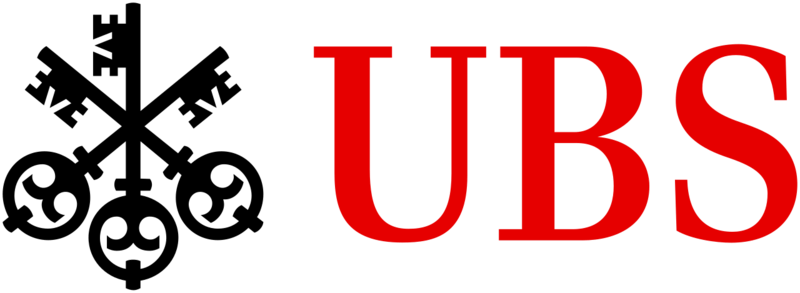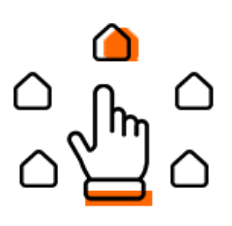Securing a Swiss mortgage can be a complex process, particularly for expatriates and first-time homebuyers. This comprehensive guide delves into the intricacies of obtaining a Swiss mortgage, providing expert insights and detailed information to help you obtain a Swiss mortgage with confidence, making informed decisions as you navigate the Swiss mortgage landscape.

Should You Buy Property in Switzerland?
Buying property in Switzerland is often considered a prudent investment due to the country’s robust economy and high quality of life. However, it’s essential to evaluate several factors before making a purchase:
- Property Prices: Real estate in Switzerland can be expensive, particularly in major cities like Zurich and Geneva. Research current market trends to understand pricing in your desired location.
- Local Regulations: Switzerland has strict regulations regarding property purchases, especially for foreigners. Understanding these regulations can prevent potential legal and financial issues.
- Long-Term Goals: Consider your long-term objectives, including investment potential, lifestyle changes, and whether you plan to live in the property or rent it out.
Who Can Get a Mortgage in Switzerland?
Eligibility for a mortgage in Switzerland largely depends on your financial situation and residency status:
- Swiss Citizens and Permanent Residents: Generally, they have easier access to mortgage products due to their stable residency status and financial track records.
- Foreigners: Expatriates can also obtain mortgages, but the process may be more intricate. Lenders require additional documentation, such as proof of residency, work permits, and a significant down payment.
Obtain a Swiss Mortgage as a Foreigner
Foreign buyers face unique challenges when securing a mortgage in Switzerland. Here’s what you need to know:
- Additional Documentation: Be prepared to provide extra documentation, including proof of income, employment, and residency status.
- Down Payment: Expect to make a larger down payment compared to Swiss residents, often around 25% of the property’s value.
- Local Regulations: Familiarize yourself with specific regulations affecting foreign buyers, such as limitations on the types of properties you can purchase.
Types of Swiss Mortgages
Fixed-Rate Mortgages
Definition and Structure: Fixed-rate mortgages maintain a constant interest rate throughout the term, typically ranging from 1 to 15 years. This stability is ideal for borrowers who prefer predictable payments and want to shield themselves from interest rate volatility.
- Pros: Predictable payments, protection against rate increases.
- Cons: Generally higher initial rates compared to variable-rate mortgages.
Variable-Rate Mortgages
Definition and Structure: Variable-rate mortgages have interest rates that fluctuate based on market conditions, such as the Swiss National Bank (SNB) rate. They usually offer lower initial rates but carry the risk of increased payments if rates rise.
- Pros: Potentially lower initial rates, savings during low-rate periods.
- Cons: Payment variability, risk of rate increases.
LIBOR/SARON Mortgages
Definition and Structure: LIBOR-based mortgages are linked to the London Interbank Offered Rate, while SARON-based mortgages are tied to the Swiss Average Rate Overnight. SARON mortgages have become more common as LIBOR is phased out.
- Pros: Flexibility with interest rates.
- Cons: Rate volatility, potential for higher payments.
Bridging Loans
Definition and Structure: Bridging loans are short-term solutions designed to “bridge” the gap between purchasing a new property and selling an existing one. They are useful for immediate financing needs.
- Pros: Provides quick access to funds.
- Cons: Higher interest rates, short-term nature.
Offset Mortgages
Definition and Structure: Offset mortgages link to a savings account, where the savings balance offsets the mortgage balance for interest calculation purposes.
- Pros: Can reduce interest costs.
- Cons: Requires maintaining a significant savings balance.
Mortgages for Other Purposes
Definition and Structure: These mortgages are used for purposes beyond property purchase, such as home renovations or debt consolidation.
- Pros: Flexible use of funds.
- Cons: Varying terms and conditions.
Green Mortgages
Definition and Structure: Green mortgages are offered for energy-efficient properties or improvements. They often come with lower interest rates and incentives.
- Pros: Lower interest rates, incentives for sustainable practices.
- Cons: Limited availability based on property type.
Swiss Mortgage Rates
How Much Can You Borrow for a Swiss Mortgage?
The borrowing amount is influenced by your income, creditworthiness, and the property’s value. Lenders typically allow up to 80% of the property’s value, but this can vary.
Example Loan Calculation
To illustrate how mortgage payments and total costs accumulate, here’s a detailed example:
| Details | Amount |
|---|---|
| Property Value | CHF 500,000 |
| Down Payment (20%) | CHF 100,000 |
| Loan Amount | CHF 400,000 |
| Interest Rate (Fixed) | 1.5% |
| Term | 20 years |
| Year | Monthly Payment | Total Payment | Total Interest |
|---|---|---|---|
| 1 | CHF 1,931 | CHF 23,172 | CHF 6,172 |
| 5 | CHF 1,931 | CHF 115,548 | CHF 30,548 |
| 10 | CHF 1,931 | CHF 231,096 | CHF 61,096 |
| 20 | CHF 1,931 | CHF 462,192 | CHF 121,192 |
FastHypo’s Service: Use FastHypo’s online mortgage calculators to obtain a detailed estimate of your mortgage affordability and payments. Try our calculator to evaluate how different rates and terms impact your loan.
Using Your Pension Fund to Secure a Swiss Mortgage
In Switzerland, you can use your occupational pension fund (Pillar 2) to finance part of your mortgage. This reduces the amount needed to borrow but requires careful planning to avoid impacting your retirement savings.
Online Mortgage Calculators
Online calculators help estimate mortgage affordability and payments based on income, down payment, and interest rates. While useful for preliminary planning, professional advice is recommended for precise calculations.
How to Apply for a Mortgage in Switzerland
Application Process
- Assess Financial Situation: Analyze your income, savings, and existing debts.
- Calculate Affordability: Use online tools and consult with financial advisors to determine what you can afford.
- Gather Documentation: Collect necessary documents such as proof of identity, income, and assets.
- Submit Application: Apply to lenders, providing all required information and documentation.
- Review Offer: Carefully review the mortgage offer and terms before acceptance to ensure they meet your needs.
Banks Offering Swiss Mortgages to Expats
Several Swiss banks specialize in providing mortgages to expatriates. It’s beneficial to work with banks experienced in handling foreign clients, as they understand the additional requirements and challenges.
Help with Securing a Swiss Mortgage
A mortgage broker or advisor can be invaluable in navigating the Swiss mortgage landscape. They offer assistance with the application process, compare mortgage offers, and ensure compliance with all requirements.
Mortgage Costs in Switzerland
Taxes and Tax Relief on Swiss Mortgages
Mortgage interest payments in Switzerland may be tax-deductible, reducing your taxable income. Additionally, consider property taxes and other associated costs in your overall financial planning.
Property Insurance in Switzerland
Property insurance is crucial for safeguarding your home and mortgage investment. Ensure you have adequate coverage for potential risks, including damage and liability.
Mortgage Repayments in Switzerland
Mortgage repayments generally include both principal and interest. The amount varies depending on the mortgage type, interest rate, and amortization method.
Refinancing a Swiss Mortgage
Refinancing allows you to modify your mortgage terms, such as securing a lower interest rate or adjusting the loan duration. Evaluate the costs and benefits of refinancing to determine if it suits your financial goals.
Terms and Conditions
When applying for a Swiss mortgage, be aware of the terms and conditions imposed by lenders. These may include:
- Interest Rates: Fixed or variable, depending on the mortgage type.
- Repayment Terms: Duration and frequency of payments.
- Fees and Charges: Application fees, processing fees, and early repayment penalties.
- Insurance Requirements: Necessary property and life insurance.
Review all terms and conditions thoroughly before signing a mortgage agreement to understand your obligations and rights.
Conclusion
Obtaining a Swiss mortgage involves understanding various mortgage types, navigating the application process, and considering special factors for expatriates. This comprehensive guide equips you with the knowledge to make informed decisions and secure a mortgage that aligns with your financial goals.
For personalized mortgage advice, detailed comparisons, and to simplify the mortgage application process, visit FastHypo. Our platform offers tailored solutions and expert support to help you find the best mortgage for your unique circumstances. Get started with FastHypo today.











